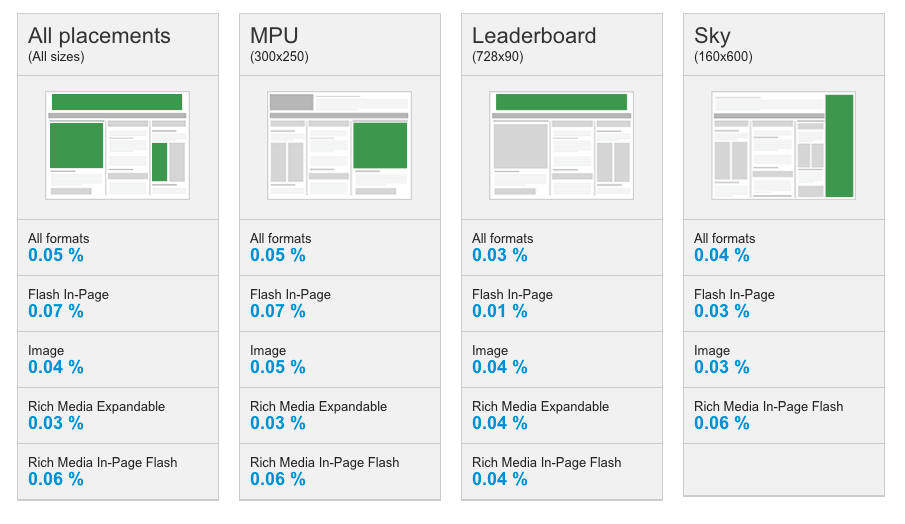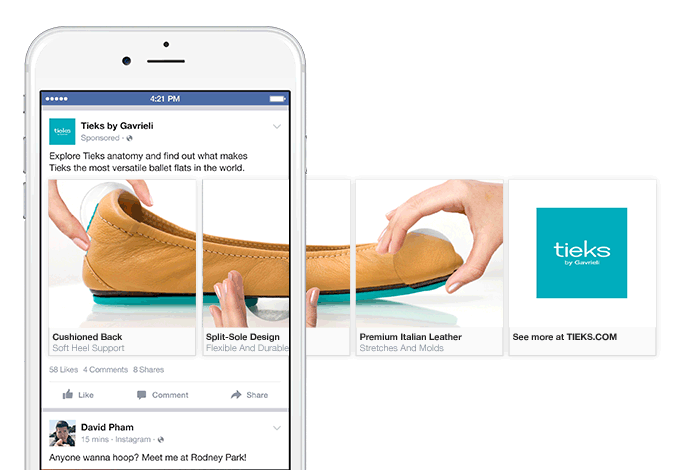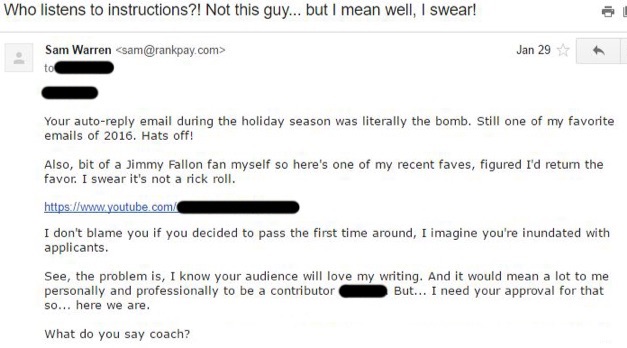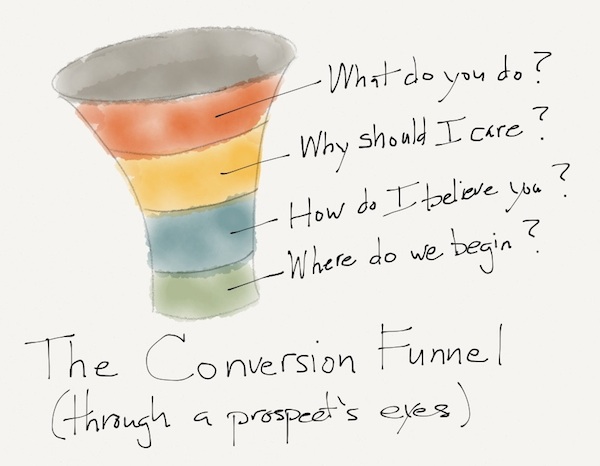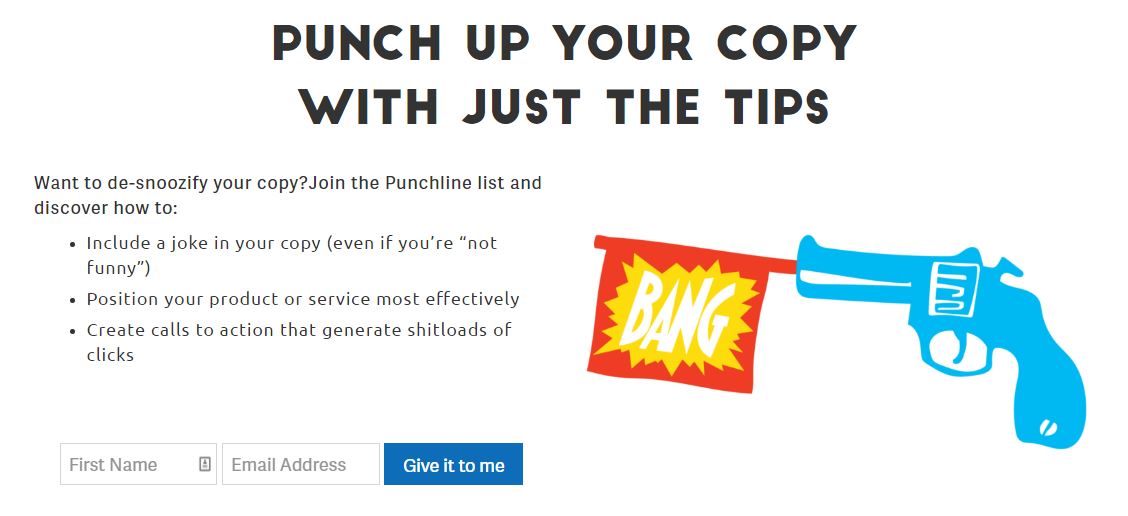How to Leverage Your Creativity to Convert Leads
Creativity (cre·a·tiv·i·ty) krēāˈtivədē noun the use of the imagination or original ideas, especially in the production of an artistic work. Creativity may not immediately seem incredibly relevant to CRO. After all, CRO is often thought of as a study in best practices and procedural experimentation. Today, I’d like to challenge you to look a little […]
Creativity (cre·a·tiv·i·ty)
krēāˈtivədē
noun
- the use of the imagination or original ideas, especially in the production of an artistic work.
Creativity may not immediately seem incredibly relevant to CRO. After all, CRO is often thought of as a study in best practices and procedural experimentation.
Today, I’d like to challenge you to look a little deeper.
Following best practices does matter of course. You should absolutely continue to optimize your pages with A/B testing, focusing on message-match and ensure your CTA’s are clear and concise.
But there are a number of interesting and entirely useful ways that you can “shake the trees” so to speak.
Let’s take a closer look at how you can flex your creative muscle to increase conversions.
Remind Me Why We Have to Do This?
One word. Oversaturation.
Users are increasingly “blind” to traditional forms of advertising. Just take a look at banner ads.
Users are essentially numb to them, and have been for a long time. In fact, studies show that users generally don’t even give site siderails a single consideration. I know I don’t, and I bet you don’t either.
This study showed that across all mediums and placements, CTR on banners lands somewhere around .05%. Yikes.
Same goes for spam emails, banners, popups… the list goes on.
I’m not saying these tactics don’t work, remarkably some of them still do. Banners are still valuable to expose new audiences to your brand identity even if they don’t garner clicks. Popups can still gather leads when implemented appropriately.
My point is, they’re no longer “fresh” enough to grab someone’s attention and create a memorable experience.
This is why leveraging creativity matters now more than ever. Without further ado, here are three wacky ways to do just that.
1. Be Original. Be Memorable.
“Just be yourself.”
I know, I know. This sounds like the advice Mom gave you before you went to summer camp. How’d it work out for you then? Stolen lunch money? Teasing?
While there are some potential downsides to being unique, particularly when surrounded by kids or teenagers, the perks can be pretty fantastic as well.
I’d go so far as to say that in the business world, being memorable is worth its weight in gold.
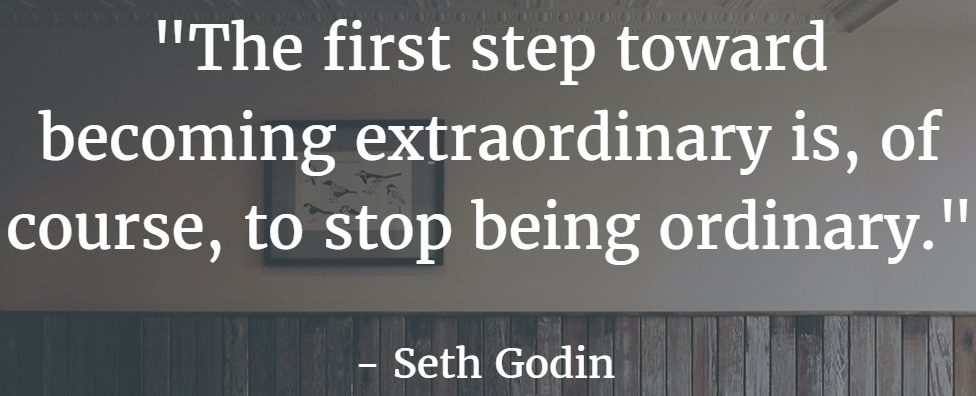
Many customers make buying decisions based off emotional responses to brands. Whether it be to an ad, an email, or maybe a customer review they saw on YouTube.
The brands that tell compelling and memorable stories are the ones that land the most sales.
By being memorable and evoking a positive response from leads, you too can capitalize on this. A few ways to accomplish this…
- Curate a quirky imagery style that you feature on ads, social platforms and your website. Moz does a fantastic job of this, check out their ad portfolio on MOAT.
- Come up with a memorable and unusual catch phrase, then shout it to the world. When I think about slogans, my mind always races to Redbull. “Redbull gives you wings” is to this day, one of the most impactful, concise, and informative slogans I can think of.
- Be disruptive with your advertising (screw the norms). Facebook canvas ads are a fantastic way to get creative with your approach. Check out this example by tieks.
Sticking out like a sore thumb is a good thing when it comes to converting leads. Making a lasting impression and being personable will endear your brand to leads.
Remember, you always want to view your digital funnel from the eyes of the visitor.
Discerning visitors have an inherent sense of authenticity. If you’re genuine with your approach to your product or service, that will come across loud and clear, and in turn builds trust.
The icing on the cake? The more a lead trusts you, the more likely they are to convert.
TLDR: Developing your brand’s unique voice and “personality” encourages consumer trust, which in turns produces sales.
2. Email Nurturing with Authenticity
We all know that email is massively effective when it comes to converting leads. It’s safe to assume each and everyone of you reading this tracks email signups as “goals” in your analytics platform of choice.
Hell, at RankPay we even have a tradition of lining up for high-fives when our MailChimp subscription level increases.

It’s time again to bust out our creativity and buck the trend.
In short, we want to be the unforgettable brand that’s unique but not bizarre enough to be off-putting.
For instance, I recently landed an opportunity by breaking all of the rules. Even the ones deliberately laid out in the denial letter I first received.
With this in mind, start by taking a closer look at your own lead nurturing email campaigns. Are the subject lines innovative, quirky or unique? Do they have any personality?
Have some fun and try A/B testing novel subject lines where you let your personality shine through. Note that it’s OK if you hear your brain protesting…
“Play it safe! What are you doing? Best practices are established. You can’t go rogue like this!”
But do it. Click send. That quirky but endearing email subject line might be just what the doctor ordered.
When you have fun, your audience will recognize this intuitively. Smiles are infectious. Positive brand associations mean more conversions.
3. Write Marketing Copy to Appeal to Emotions
Every chance you have to put words in front of your leads, is a chance to sell them on your solution. But without appealing to a lead’s emotions, we’re wasting these opportunities.
It’s understandable that us marketers occasionally struggle with this part. We become intimately familiar with our products and services, and it can become difficult to see the forest for the trees. That is to say that we lose sight of what a customer journey looks like from the prospect’s point of view.
Just the other day I caught myself writing a headline for a lead-nurturing email as follows: “The Best SEO Service for Small Businesses”. That’s all well and good. It’s a fairly standard headline in that it clearly highlights our company’s service and our target audience. But it’s not memorable and I’m not sure it will truly “connect” with readers.
Luckily I realized it, and took a step back to brainstorm. In the end, I decided to go with “The easy, affordable way to earn higher rankings.” This version has a lot going for it.
- It’s punchy
- It’s catchy
- It connects with the problems this reader faces (budget and difficulty)
- It conveys authority
- It explains what we do
And again, I’d point out that being memorable matters. Generic = forgettable. Unique = memorable.
Let’s take a look at a few places you can put this to work for your business.
Company motto or slogan
Day in and day out I see brands without a good catch phrase.
Look at it this way: every single person is inundated with brand exposures from the moment they wake up. Some studies show individuals being exposed to literally thousands of ads each day.
Yankelovich, a market research firm, estimates that a person living in a city 30 years ago saw up to 2,000 ad messages a day, compared with up to 5,000 today. – New York Times
The thing is, there’s only so much room in our brains to remember all of these brand impressions. It’s thus critical that we aim to be one of the few brands that leaves a truly lasting impression.
When I’m helping clients develop these “quick pitches”, my process looks like this:
- Brainstorm as many ideas as I can (25-100)
- Pick the best 10-15
- Iterate and improve
- Get third-party feedback
- Finalize 3-5 versions
- A/B test for resonance
It’s so simple it hurts. But at the end of the day, it works.
Headlines
When it comes to being creative with your headlines, start by asking yourself a few key questions.
- Does this convey our solution’s value to the customer?
- Is it punchy and concise?
- Does it appeal to emotions?
- Is it consistent with our overall “story”?
These questions should get your gears turning and the creative juices flowing.
Remember, we want to craft a memorable message that our leads will not forget. We also want to make sure that we evoke an emotional response and appeal to the potential customer’s needs or desires.
Check out this killer example…
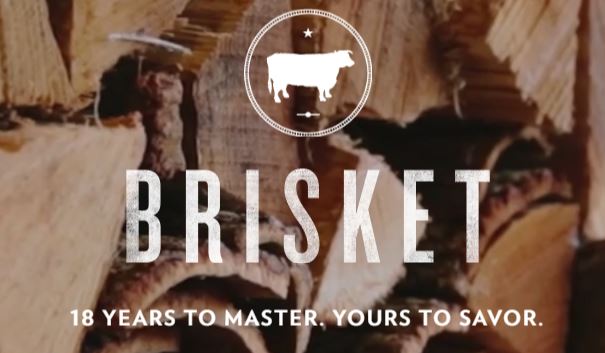
It’s got everything going for it. It’s punchy and unique. The wording matches the imagery. The use of the word savor as a verb is particularly great because it elicits a clearly emotional response from the audience. Who wouldn’t want to eat whatever they’re serving at this place?
Calls to action
You’ve probably already spent a lot of time optimizing the button size, color and placement. If not, be sure to check this guide on how to improve the efficacy of your CTAs in general.
Regarding the wording however, it’s important to take the chance to put something personal in the actual text. Instead of using a button that says “Submit” try something like “Start My Trial” or “Boost My Rankings”.
Copyblogger clearly showed data that corroborates using “first-person” CTA text will increase conversions. Cool right?
Last but not least, remember to be unique. Don’t be afraid to let personality shine through. Here’s an example of both a CTA and a form that I immediately loved.
Remember, Being Weird Isn’t So Bad
If you’ve watched Freaks and Geeks, you probably already believe this statement. If you’re more of the Biff type, there’s nothing wrong with you either. We love everyone here.
But I hope you’ll take the time to consider the advice above, as it can really work wonders on your conversion rate.
The key takeaways are to embrace personality, be genuine, and appeal to your customers emotions. The more a customer trusts your brand and remembers your message, the more likely they are to buy.
Write interesting copy, be weird with your subject lines, and be memorable! Let your freak flag fly!
About the Author: Sam is the marketing manager at RankPay, a top-rated SEO service. When Sam’s not writing or growing businesses, he enjoys talking about himself in the third person.

